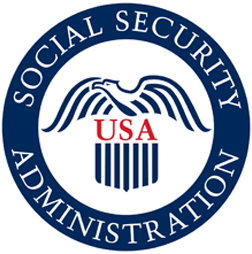Shared Ticket Payment Agreements
The use of Shared Ticket Payment Agreements is a partnership model that a few State Vocational Rehabilitation (VR) agencies adopted shortly after the 2008 Ticket regulations took effect. They saw it as a means of engaging more service providers in the Ticket Program to ensure beneficiary access to ongoing supports. The availability of ongoing supports can be critical in ensuring that beneficiaries exiting the State VR system achieve long-term employment success. This is not a Partnership Plus model since the VR agency is electing to operate as an EN and seek payment under the Ticket Program. Such service providers are referred to as VRENs.
The State VR agencies that adopted this model secured Ticket assignments by having beneficiaries sign the SSA-1365 form and submitting it to the Ticket Program Manager (TPM). These beneficiaries were informed that the Ticket was being assigned to the VR agency, usually by signing or initialing a statement on the Individualized Plan for Employment (IPE).
The process for State VR agencies to secure Ticket assignment changed in September 2013. They must now sign the State VR Agency EN Ongoing Support and eProcess Agreement. This agreement offers the VREN a choice between two models for service deliver.
- Agencies choosing the Full Services Model keep the Ticket assignments after VR case closure and make a commitment to maintain ongoing contact with beneficiaries after case closure to ensure continued access to ongoing support after job placement. The ongoing support may be provided by the State VR agency or by a partnering service provider.
- Agencies choosing the Phase 1 Services Only Model unassign the Ticket after payment for Phase 1 services and facilitate a handoff of beneficiaries to other service providers for access to ongoing support.
The purpose of the Shared Ticket Payment Agreement is to establish in writing a system for sharing revenue received through the Ticket Program. The terms of these agreements vary. For example, one may establish a 50/50 split of all Ticket payments earned while another may give all Phase 1 milestone payments to the State VR agency with any Phase 2 milestone and outcome payments received going to the partnering EN or non-EN VR vendor providing the ongoing support.
One advantage of these agreements is that VR vendors that are not approved ENs can get involved in providing ongoing support to beneficiaries and receive compensation through their share of the Ticket payments that are received by the State VR agency. In at least one state, this model was used to create an administrative EN with the State VR agency acting as the EN of Record and assuming responsibility for the administrative functions necessary to participate in the Ticket Program. Under this model, the partnering providers are mental health organizations throughout the state.
In states where VR releases the Ticket at case closure so it can be reassigned to an EN, an agreement may be established that determines how Ticket payments will be split or the decision may be left up to the TPM to decide based on its rules for split Ticket payments. Under this model, the organization providing the ongoing support would have to be an EN in order to secure the Ticket assignment and receive payment.

